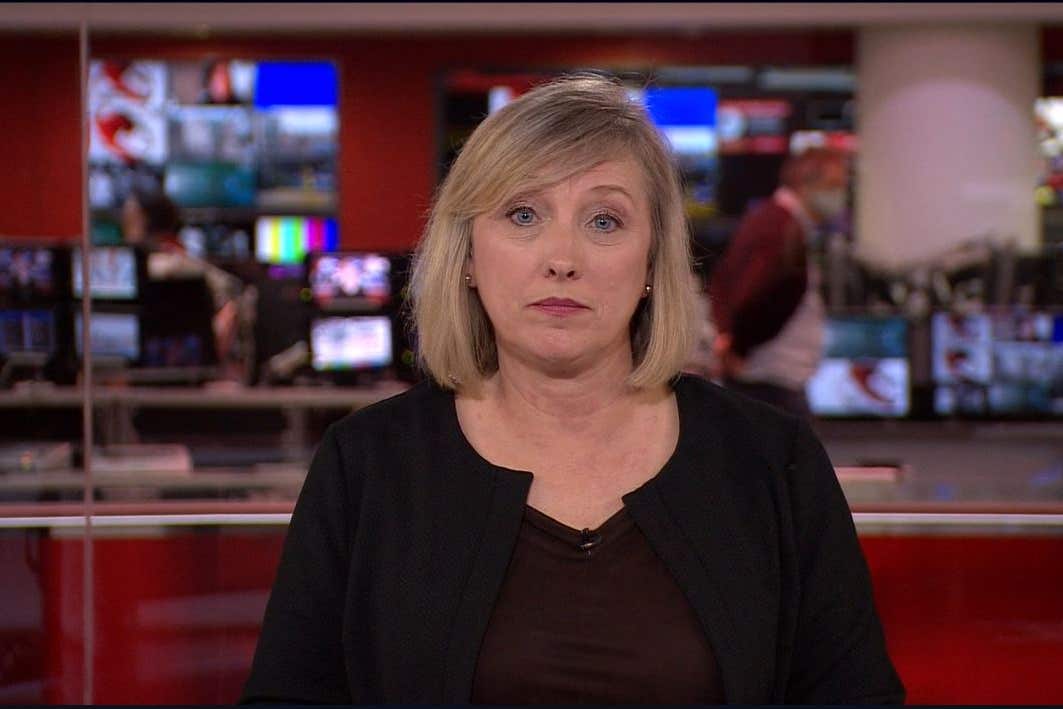Martine Croxall returns to BBC News following 12 days off-air
The broadcaster did not acknowledge her absence on her return to the airwaves.

Martine Croxall has returned to presenting BBC News after 12 days off-air following claims she had showed bias when Boris Johnson pulled out of the Conservative leadership contest.
The 53-year-old broadcaster was taken off TV following an episode of The Papers on October 23 where she made “several remarks and reactions” which caused a “significant risk” that the audience could believe “opinions were being expressed”, the BBC said.
On Thursday, the corporation ruled the programme had failed to meet its impartiality standards after reviewing viewer complaints.
Returning to presenting BBC News on Friday, Croxall failed to acknowledge her absence, opening the programme saying: “This is BBC news, I’m Martine Croxall, the headlines at 11am.”
The accusations of bias came during her introduction to the Sunday night edition of The Papers, in which members of the press and experts look at how the main stories of the day were covered, where Croxall said: “Well this is all very exciting, isn’t it?” adding: “Am I allowed to be this gleeful? Well, I am.”
The programme started around 90 minutes after Mr Johnson pulled out of the Tory leadership race.
In her first question to her guests, Croxall also remarked: “Can we even show you the front pages just yet, have they arrived? No they haven’t arrived.
“It’s all a little bit, you know, lastminute.com isn’t it? Because all the front pages were probably out of date by the time we received them.”
The episode also saw Croxall suggest that her comments could have breached BBC guidelines.
Responding to a guest’s joke aimed at Mr Johnson, she said: “I shouldn’t probably (laugh). I’m probably breaking some terrible due impartiality rule by giggling.”
Some viewers, including several Tory MPs, reacting to a clip on social media, complained it displayed bias.
Former culture secretary Nadine Dorries said on Twitter: “This lack of impartiality demonstrates how deep-seated the bias is.”
Bookmark popover
Removed from bookmarks